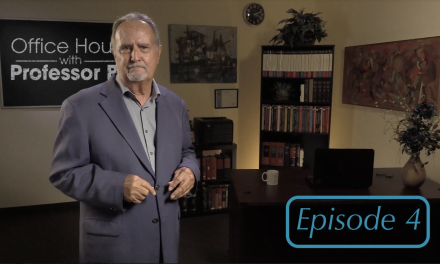Recorded documents determine date a lien expires
Amended by SB 2624:
Civil Code §882.020
- if the final maturity date can be ascertained from the recorded document, ten years after that date; or
- if the final maturity date cannot be ascertained from the recorded document or if there is no final maturity date, 60 years after the date the document was recorded.
Prohibited fees in sale of defaulted common interest development (CID)
Amended by SB 2624:
Civil Code §1367.1
A trustee foreclosing an owner’s separate interest in a common interest (CID) development cannot charge fees exceeding statutory limits plus the cost of service for either of the following:
- the notice of default to the owner’s legal representative; or
- the decision of the board of directors of the association to foreclose upon the separate interest of an owner by giving notice by personal service if the owner occupies the property or by mail if the owner does not occupy the property.
The owner’s legal representative is the person whose name appears as the owner of the separate interest in the association’s records, unless the owner has designated another person as his legal representative in writing and mailed notice of the designation to the association, return receipt requested.
Requirements for collecting delinquent CID assessments on separate interests
Amended by SB 2624:
Civil Code §1367.4
The trustee foreclosing an owner’s separate interest in a CID must include in the notice of trustee’s sale a statement that the property is being sold subject to the owner’s 90-day right of redemption following the trustee’s sale.
Privileged communication in foreclosure proceedings
Amended by SB 2624:
Civil Code §2924
Any performance by a trustee foreclosing on real estate of the actions necessary to the foreclosure proceedings is considered privileged communication.
Authorized agent may also conduct default sale
Amended by SB 2624:
Civil Code §2924a
If the power of sale is given to any trustee, the attorney for the trustee or any duly authorized agent can conduct the sale.
Requirements for certificates of foreclosure sales
Amended by SB 2624:
Code of Civil Procedure §729.040
In a judicial foreclosure, the purchaser of a property sold subject to the right of redemption will receive a certificate of sale that contains:
- the cause and number of the action, as well as the title of the court where judgment was made for the sale;
- the date of the judgment;
- the names and addresses of the creditors and debtors of the judgment;
- a description of the property sold; and
- the date of sale.
In a trustee’s foreclosure, the purchaser of a property sold subject to the 90-day right of redemption following the sale, such as an owner’s separate interest in a CID, will receive a certificate of sale that contains:
- the names and addresses of the creditors and debtors of the judgment;
- a description of the property sold; and
- the date of sale.
In addition to these requirements, the certificate of sale for either a judicial or nonjudicial foreclosure must include:
- the price paid for each lot or parcel of property;
- the total price paid; and
- a statement indicating the property was sold under the right of redemption, including the length of the redemption period.
Notice of right of redemption must be served by conductor of sale
Amended by SB 2624:
Code of Civil Procedure §729.050
Notice to trustee when filing a petition for price or eligibility
Amended by SB 2624:
Code of Civil Procedure §729.070
When an owner or the purchaser under a certificate of sale subject to a redemption period files a petition requesting a court order to determine the redemption price or whether the owner is entitled to redeem the property, the petitioner must give written notice of the filing to the levying officer or trustee who held the foreclosure sale.
Delivery of trustee’s deed or redemption certificate
Amended by SB 2624:
Code of Civil Procedure §729.080
If the redemption price is not deposited by the owner before expiration of the redemption period in a trustee’s sale subject to a redemption period, the trustee must execute and give the deed of sale to the purchaser at the foreclosure sale.
If the redemption price is deposited by the owner before expiration of the redemption period, the trustee must execute and deliver a certificate of redemption to the owner and record it in the county where the property is located.
Residential notice to vacate, 30 or 60 days
Civil Code §1946.1
Periodic residential tenancies, called unspecified-term leases, are automatically extended for the same period unless the landlord or the tenant provides the other with a written notice to vacate, called termination of the tenancy.
When a residential landlord serves a written notice to vacate on a tenant, the notice must be served at least:
- 60 days prior to the date the periodic tenancy is to terminate if the tenant has resided in the unit one year or more; or
- 30 days prior to the date the periodic tenancy is to terminate if the tenant has resided in the unit less than one year.
When a residential tenant under a periodic tenancy serves a written notice of his intention to vacate on the landlord, the notice must be served at least one tenancy (rent payment) period in length prior to the date the periodic tenancy is terminated and the tenant intends to vacate, for example, 30 days under a month-to-month rental agreement.
Until December 31, 2009, should the landlord of a single-family dwelling, condominium unit, or other residential parcel occupied by a tenant on a periodic tenancy enter into a purchase agreement and escrow instructions to sell the parcel to a buyer who intends to occupy the property for at least one year following the termination of the occupant’s tenancy, the landlord may terminate the periodic tenancy by serving a 30-day written notice to vacate and the tenant must vacate on expiration of the notice, if:
- the escrow is with a licensed escrow agent or a licensed real estate broker; and
- the notice to vacate is given within 120 days after escrow is opened.
On the termination of the tenant’s occupancy due to a sale of the dwelling to a buyer-occupant, the tenant retains the right to serve the landlord with a notice to vacate as allowed by his periodic tenancy.
Value transfer for property damaged in a disaster
Revenue and Taxation Code §69
Effective January 1, 2007, the base-year assessed value of property which has been substantially damaged or destroyed by a disaster on or after July 1, 2003 may, within five years of the disaster, be transferred to comparably used and valued property constructed or acquired within the same county, and be the replacement property’s base-year assessed value as the 2003–2004 fiscal year.
The prior law applied to any comparable property acquired or constructed to replace property substantially damaged or destroyed by a disaster occurring on or after October 20, 1991, setting the base-year assessed value as the 1991–1992 fiscal year.
A disaster is any misfortune in an area declared by the Governor to be in a state of disaster as a result of the misfortune.
A property is considered substantially damaged or destroyed if a disaster reduces the property’s cash value by more than 50 percent. Decreased property value resulting from restricted access to the property is considered property damage.
A replacement property is considered comparable if it performs the same function as the damaged property and does not exceed the damaged property’s cash value prior to the disaster by more than 120 percent.














As A Realtor, I like to read up on the most current laws Thank you